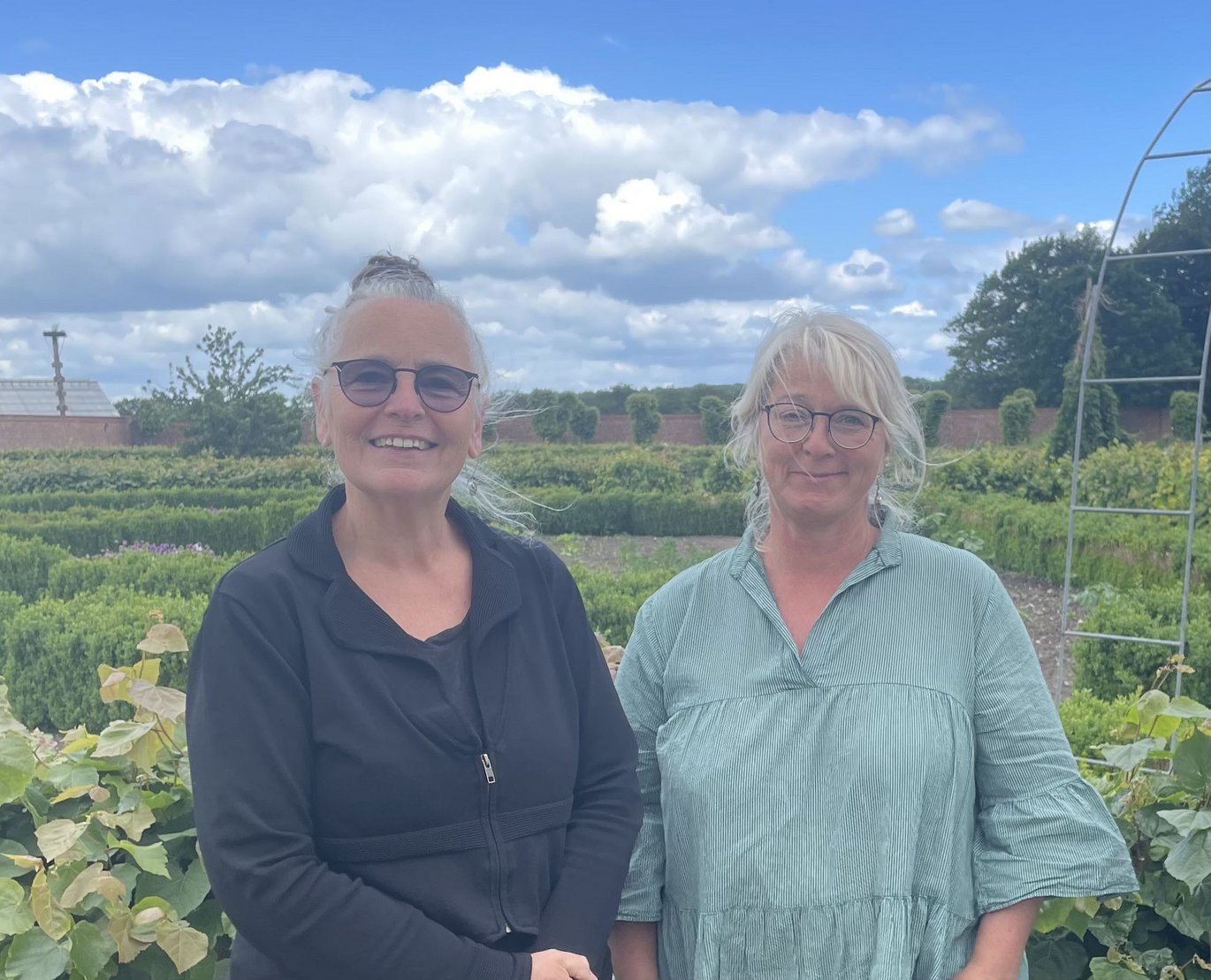Aarhus University plant experiments moves to Djursland
In the future, Danish cultivation experiments with fruit, berries and vegetables will take place on areas west of Gammel Estrup, which also houses the Green Museum

How do we ensure the sufficient supply of phosphorus to vegetables when the rules are tightened? Can you replace synthetic dyes with natural carrot coloring agents? How to reduce nitrate leaching from vegetables? How can we increase yields and quality of organic apples? Can compost and plant-based fertilizers provide high yields and fertile soil in organic farming? How do we improve the quality of legume proteins?
In order to find the answers to such questions, research is necessary - and the basis for the research is practical cultivation experiments, where e.g. new plant varieties and cultivation techniques are tested in practice.
In Denmark, it is mainly the Department of Food Science at Aarhus University, which is responsible for research and cultivation experiments in fruit, berries, and vegetables. In recent years, the department has gathered its research activities in Agro Food Park in Skejby, and now the department will also have areas for cultivation experiments near the department as part of the university's strategic investment in plant-based foods. Previously, these experiments have been performed in Årslev in Funen. Now, they are found on Djursland with the official name AU Auning.
Activities are gathered in Skejby and at Gammel Estrup
- Gathering activities in Skejby, allows Aarhus University to strengthen the research environment within food and, at the same time, to intensify the collaboration with the many food companies and advisors in agriculture and food in and around the unique food ecosystem at Agro Food Park in Skejby, says Michelle Williams, Head of Department.
- We are pleased that we are now able to start using new experimental areas for research into fruit, berries and vegetables – that are closer to the department, says Michelle Williams and she continues: AU Auning is absolutely crucial for us in order to maintain our internationally recognized position within two of our strategic research themes: Plants, food and the environment, as well as climate-friendly food. The new experimental areas are located west of Auning on Djursland and cover 37 ha.
sThis spring, experimental plots have been established on the area, and fences - both hedges and steel fences - are now being built around the experimental fields; especially in order to keep game from eating the crops. In the autumn, an orchard will be established for experimental purposes, and a machine house and a building for offices and work as well as cold stores will be built.
Collaboration with the Green Museum
The nearest neighbor to the experimental area is the Green Museum, which is a state museum under the Ministry of Culture. The museum has the national responsibility for the cultural history of hunting, forestry, agriculture and food.
- Being close neighbors opens up for completely new and exciting opportunities, says Director of the Green Museum, Anne Bjerrekær. Among other things, she points out that a significant part of the activities in the experimental area is based on issues within the green transition of agriculture and food production.
- Aarhus University works with the food of the future, and the Green Museum works with the cultural history of food and raw materials. When we join forces, we can create something completely new and exciting for the benefit of both future consumers and future museum guests, says Anne Bjerrekær.
New activity in Norddjurs Municipality
In Norddjurs Municipality, Mayor Kasper Juncher Bjerregaard is also very pleased that Aarhus University is placing research and experimental activities in the municipality.
- It is interesting that a significant part of the knowledge base for the green transition in the future will be created in Djursland, and I hope that our agriculture and our companies will take advantage of the opportunity to work closely with research, says Kasper Juncher Bjerregaard.
Kasper Juncher Bjerregaard also points out that the activities will give new energy to the collaboration with Aarhus University, which is already taking place around the museums and the Kattegat Center.
Additional information
Head of Department Michelle H. Williams, Department of Food Science, Aarhus University. Phone +45 2517 0049. E-mail: mw@food.au.dk
Director of the Green Museum, Anne Bjerrekær. Phone +45 2080 1278. E-mail: ab@dgmuseum.dk
Mayor Kasper Juncher Bjerregaard, Norddjurs Municipality. Phone +45 51 23 86 14. E-mail: kjb@norddjurs.dk
